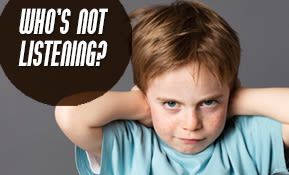
Are Your Kids Like You?
What looks like real danger signs to you and me, because of what we ourselves experienced, and where we came from, might not be for our children, especially in this generation…

Parents can raise a child, and think that they know their daughter or son, and think that the children don’t have the qualities that they have. The opposite is also true, especially if the parents have been trying to submerge some facet of their personality, or keep it under the rug for the last twenty years. Nevertheless, they’ll see that ultimately, everything that’s in them is also going to be in their children, in some form.
G-d makes an uncanny thing happen: He takes these young kids, and gives them to us as “empty sacks”. They are filled up with whatever we put into them, and I don’t just mean our formal efforts to educate them. Our perceptions, our memories, our childhood experiences, all these things are going into our kids by osmosis. Many of the things that we no longer even remember, or forgot about ourselves are all going into our kids.
Let’s take a common example, especially these days, when there are so many people who are coming back to a Torah lifestyle. Mr. Cohen has been living a very secular lifestyle for the last 20 or 30 years. He works on Wall Street and goes to Mets games. He plays electric guitar with a rock band, and he’s avidly waiting for the next Batman movie to come out. Suddenly one day, he discovers G-d, and he gives all the old stuff up and becomes religious. He doesn’t do any of those things that he used to love so much  anymore. He doesn’t go to any more clubs or discos. He turns his back on fancy vacations in five star resorts. He tosses away all his Grateful Dead albums…
anymore. He doesn’t go to any more clubs or discos. He turns his back on fancy vacations in five star resorts. He tosses away all his Grateful Dead albums…
It’s part of his past, it’s an integral part of his personality and experiences and memories, but he doesn’t want anything to do with those things anymore, so he seals that part of himself up, and he shoves it in the deep-freeze. Fast-forward 15 years and the now very religious Mr. Cohen has moved to Israel, and is living in a very religious, very holy, hermetically sealed neighborhood. He has no idea how or why, but all of a sudden, his teenage son is developing an interest in non-Jewish music and riding a motorcycle. The boy is starting to do things that really scare Mr. Cohen, and makes him panic, because it reminds him of himself, at that age.
What’s the natural reaction? For most of us when in doubt, we give our kids rebuke, an hour-long lecture, or some form of sermon. We tell our children how terrible whatever it is they are dabbling in is for them, how awful it is. The more we do that, the more the child won’t want anything to do with us. The son or daughter will find reasons to stay out late at night and to get up early and leave the house, so that they don’t have to spend any time with us and listen to our sermons. Who can blame them? Who wants to spend precious minutes or hours of their life being told about what a horrible future they’re going to have, if they keep doing whatever they’re doing?
The problem for Mr. Cohen, and for us, is that we are projecting our past onto our children. Their lives are not exact parallel to ours. What looks like real danger signs to you and me, because of what we ourselves experienced, and where we came from, might not be for them.
For example, we know that when we listened to non-Jewish music as a college student, it was mixed up with a whole bunch of other anti-Torah, activities that college students were doing that went along with that type of music. So we panic, and we start to think that our kids will start doing the same sort of horrible, destructive, evil things – but that’s not necessarily the case! We have to take a breath and realize that as sincere returnees, we’ve raised our kids in a much more religious environment, and that a lot more holiness has gone into them than may seem obvious.
That doesn’t mean that our kids have carte blanche to do whatever they feel like, while we turn a blind eye and hope for the best. There are going to be times when we need to take notice and intervene, but it’s not always the case.









Tell us what you think!
Thank you for your comment!
It will be published after approval by the Editor.